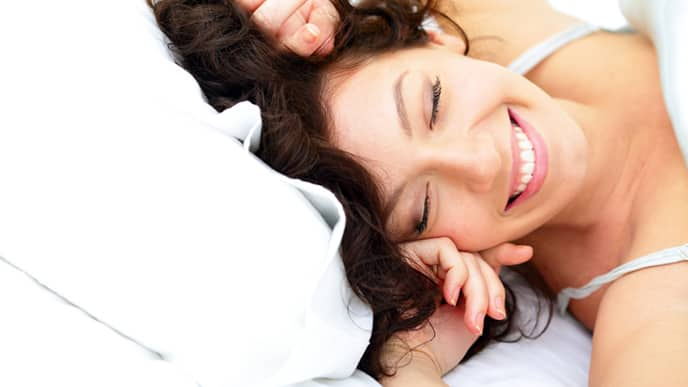About a year ago, I went to the dentist for what I thought was a regular check-up. My dentist took one look at my teeth and asked, "Are you stressed?" Apparently my teeth showed evidence of bruxism. My dentist explained that bruxism, a condition most often caused by stress, involves grinding your teeth, either at night or throughout the day, without realising it.
Are you waking up with headaches, a sore jaw or neck pain? Then you may be unconsciously grinding or clenching your teeth as well. Bruxism is a fairly common disorder. Often, it is mild and may not even require treatment. However, if your condition is severe enough, it may cause irreversible damage to your teeth, such as wearing down the enamel, fracturing teeth or loosening previous dental work. So how can you quit clenching your teeth and save your smile?
Reduce Stress
Increased anxiety or stress is one of a number of causes of clenching teeth, according to the National Health Service (NHS). To reduce your bruxism, learn how to manage your stress. If you're going through a particularly rough patch in your life, don't rule out professional counselling. For other stress relievers, try exercise or meditation. Even something as simple as a relaxing bath before bed may go a long way in reducing your bruxism.
Wear a Mouth Guard or Splint
Mouth guards and splints are worn at night while sleeping. They won't eliminate your bruxism, but they will protect your teeth and help redistribute the force of teeth clenching or grinding. They are available over-the-counter or you can have one custom-made by your dentist. Typically, custom-made guards are higher quality and work better than over-the-counter options, but can be much more expensive. Ask your dentist for a professional recommendation.
Correct Misaligned Teeth
If your bruxism appears to be caused by a problem with teeth alignment, correcting your misalignment may help. Your dentist may fit your teeth with orthodontic devices or braces to correct your bite and alignment. When bruxism has worn down your teeth so much that you have problems chewing, your dentist may recommend a reconstructive treatment such as crowns or overlays.
Avoid Caffeine and Alcohol
Avoid caffeine and other stimulating substances in the evening. Coffee, tea, fizzy drinks and chocolate should be off limits after dinner. These stimulants affect the quality of your sleep, making you more likely to clench your teeth during sleeping. Similarly, avoid alcohol, which also adversely affects the quality of sleep.
Muscle Relaxant
If your bruxism is particularly severe, your GP may recommend that you take a muscle relaxant before sleeping, according to the NHS. A muscle relaxant will help keep your jaw from clenching throughout the night. These types of drugs can be habit-forming, so they should be used with caution.
Acupuncture
Anecdotal evidence suggests that acupuncture can calm bruxism. Although acupuncture has not been clinically proved to cure bruxism, many people have reported that regular treatments have reduced their bruxism.









